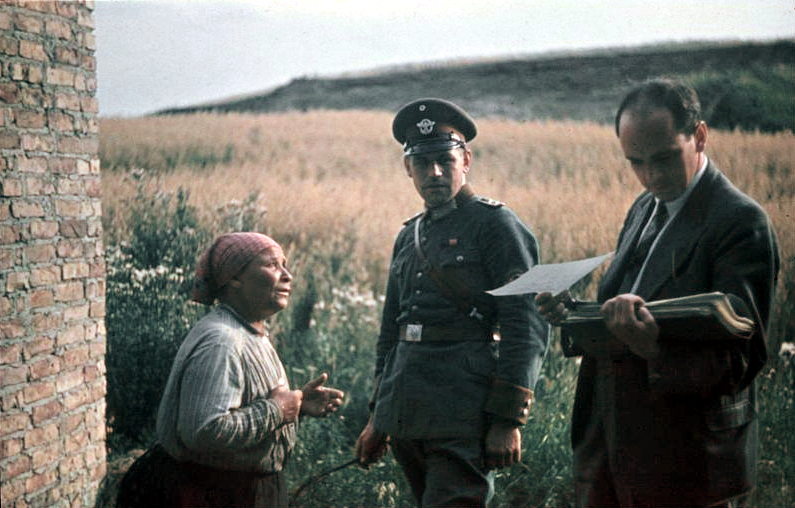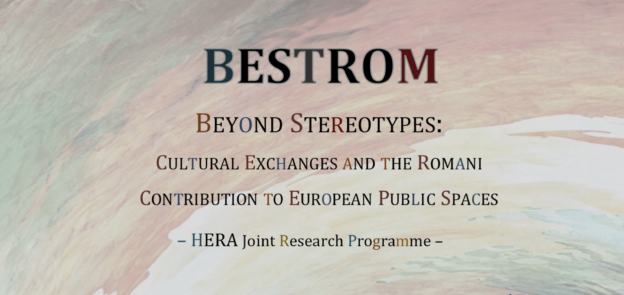El proceso secular que ha ido conformando la visión del pueblo gitano como un grupo subalterno, distinto e inferior a la autodenominada sociedad civilizada (occidental, blanca), es el motivo que reúne a los nueve especialistas que participan en el nuevo número de la revista Historia Social. Coordinado por María Sierra, este dosier recorre un largo camino cronológico (desde el siglo XVI hasta mediados del XX) en busca de los orígenes y el desarrollo de las representaciones del pueblo gitano. Pretende, por tanto, rastrear las derivaciones de una imagen inventada, no de una realidad humana que –sabemos– queda muy lejos de las ficciones aquí estudiadas.
«Beyond Stereotypes: Cultural Exchanges and the Romani Contribution to European Public Spaces» es el título del proyecto y de la aventura en la que a partir de mayo de 2019 algunos miembros de nuestro grupo se verán inmersos.
Tras concurrir a la convocatoria «Public Spaces: Culture and Integration in Europe (2019-2022)», promovida por HERA (Humanities in the European Research Area), el proyecto «Beyond Stereotypes…» ha sido seleccionado para desarrollar un variado y novedoso plan de investigaciones durante dos años. Este éxito se debe al esfuerzo colectivo del consorcio BESTROM, liderado por María Sierra (Universidad de Sevilla) y conformado por cuatro equipos que desarrollarán diferentes aspectos de la investigación en Reino Unido, Polonia, Finlandia y España. Desde hace más de un año, los profesores Eve Rosenhaft (University of Liverpool), Peter Stadius (University of Helsinki), Anna G. Piotrowska (Jagiellonian University) y María Sierra vienen trabajando conjuntamente para elaborar un plan de investigación que se propone explorar la contribución de las minorías romaníes a la construcción de los espacios públicos europeos. De este modo, el objetivo esencial que guía a BESTROM es subrayar la necesidad de considerar al pueblo romaní un agente activo en la construcción de las identidades europeas pasadas y presentes.
La historia de los gitanos es uno de los vacíos más evidentes y sangrantes al que se enfrenta cualquier disciplina comprometida con un conocimiento socialmente útil del pasado. Hace ya casi tres años, los integrantes del proyecto Pendaripen vimos en este vacío historiográfico un reto con el que la Academia debía comprometerse en su propósito (muchas veces enunciado, solo a veces realizado) de generar conocimientos que contribuyan a hacernos ciudadanas y ciudadanos más conscientes de nuestro pasado y más responsables con nuestro presente. Después de meses de intenso trabajo, acaba de salir a la luz uno de los frutos de este esfuerzo colectivo, el dossier «Gitanos: una historia negada», dirigido por María Sierra y publicado en la revista Historia y Política.
Con él, hemos aspirado a convertir el privilegiado espacio de enunciación que representa una publicación académica en una ventana a la interpelación de una comunidad de expertas y expertos poco habituada a interrogarse por este tipo de cuestiones. Lo hemos hecho a sabiendas de que no podremos (ni queremos) agotar los ángulos desde los que la historia de los gitanos puede ser abordada y con el pleno convencimiento de que esta contribución es solo un eslabón más de una cadena variada de compromisos y acciones que transcienden las barreras del mundo universitario. Pero también lo hemos hecho con la ilusión y el orgullo de saber que estos trabajos marcan un hito en el conocimiento de la historia de los gitanos en el mundo académico, y que lo hacen en un momento en el que muchos de ellos comienzan a formar parte activa y esencial de este mismo mundo.
Manuel Martínez Martínez, una de las figuras más reconocidas en la labor de recuperación de la historia romaní, inaugura el dosier con «Clamor y rebeldía. Las mujeres gitanas durante el proyecto de exterminio de 1749». Si la redada general de 1749, culmen de un proyecto de exterminio del pueblo gitano que venía fraguándose desde décadas atrás, es ya un episodio poco conocido, menos aún lo es la reacción colectiva de las gitanas arrestadas, recluidas y maltratadas con motivo de la misma. Con la intención de arrojar luz sobre este último aspecto, Manuel Martínez no solo explica la doble opresión que sufrieron las gitanas víctimas de la política racista de la monarquía española, sino que se fija en las estrategias de resistencia que estas mismas mujeres articularon en sus prácticas cotidianas; esas prácticas de contestación poco visibles y a menudo menospreciadas, que se valen de la creatividad y que nacen de cierto instinto de supervivencia, pero que a la vez dan buena muestra de la madurez y capacidad de imaginación –que es también de raciocinio, y no su opuesto– de las encarceladas. Los boicots, las huidas, las peticiones formales y los encaramientos con los ejecutantes materiales de la misma represión nutrieron un repertorio verdaderamente sorprendente de respuestas liberadoras, muchas veces frustradas, otras exitosas. Como explica Manuel Martínez, tras el fin de la reclusión, el antigitanismo que le había dado sentido no desapareció, ni mucho menos. Pero medir la importancia de los ejercicios de resistencias solo por lo que logran a corto plazo es simplista, porque su éxito no suele radicar en lo que consiguen sino en los propósitos a los que apuntan y en los valores y las sinergias colectivas que los animan.
Que el antigitanismo perduró mucho más allá de siglo XVIII es algo que de lo que también da cuenta David Martín Sánchez en el «El pueblo gitano vasco en el siglo XIX, entre la asimilación y la reafirmación», un texto que nos explica por qué el reconocimiento de la matriz cultural común del pueblo gitano no debe implicar la negación de la profunda heterogeneidad de experiencias que sus grupos han vivido. En un ejercicio de microhistoria sobre los gitanos vascos, David Martín expone la trayectoria de este colectivo desde el siglo XV hasta el XIX, centuria esta última en la que se centra especialmente para argumentar la especificidad de las persecuciones a las que los gitanos vascos estuvieron sometidos (como la rafle de 1802) y las tipificaciones negativas que los payos vascos confeccionaron sobre ellos. Las medidas represoras, junto con otros factores –atribuibles a la pura necesidad de supervivencia–, como la progresiva separación cultural del resto de grupos que vivían en tierras francesas (bohémiens, manouches y rom), los matrimonios mixtos y el trabajo campesino mano a mano con payos hizo que el componente gitano se fuera diluyendo dentro de la identidad vasca. Una desaparición del elemento reconocible de la “gitaneidad” que acabó por convertirlos en extraños para sus iguales, los gitanos de más allá del País Vasco, y que ejemplifica la complejidad de las dinámicas internas de un colectivo mucho más plural y cambiante de lo que la imaginación occidental y blanca ha pensado.
La biografía es uno de los instrumentos más adecuados para indagar en estas pluralidades de la historia gitana, tal y como demuestra el artículo de María Sierra, «Helios Gómez: la invisibilidad de la revolución gitana». La biografía del artista gitano Helios Gómez nos permite volver al periodo de entreguerras para recuperar una de las voces que en aquel tiempo convulso buscó inspiración en la revolución soviética para imaginar la emancipación de su propio pueblo. Convencido luchador por la causa obrera, Helios Gómez conoció en persona –y también idealizó– la URSS de la primera mitad de los años treinta. El modelo de desarrollo económico, social y cultural socialista-soviético, y su capacidad para reconocer e integrar la población de minorías como la romaní, dejó una fortísima huella en su pensamiento y en su arte. A su vuelta a la oscura España de la Guerra Civil, en el trabajo de Gómez convergerían el horizonte obrerista con el compromiso con la consecución de una sociedad interétnica en la que los gitanos tuvieran un reconocimiento digno. El resultado fue una obra impregnada de utopía y de ambiciones, que aunque no se materializaría ni entonces ni (de momento) nunca, sirvió de revulsivo para su lucha particular y debe sirve de referente para los retos colectivos del presente.
Los últimos años de la trayectoria de Gómez se entienden aún mejor a la luz del texto de Carolina García Sanz , «“Disciplinando al gitano” en el siglo XX: regulación y parapenalidad en España desde una perspectiva europea». Partiendo del análisis de textos legales, literatura criminalística, reglamentos policiales y expedientes procesales, Carolina García analiza y contextualiza desde una perspectiva trasnacional el tratamiento parapenal sufrido por los gitanos en España. Tras la Primera Guerra Mundial, los gitanos que vivían en Europa se convirtieron en uno de los segmentos de población más controlados y penalizados jurídicamente como seres «asociales». Estos años de persecuciones fueron un periodo clave en la transformación general del campo de gubernamentalidad en España, donde aquellos individuos etiquetados como «gitanos» quedaron despojados de la presunción de inocencia y de propiedad privada por prerrogativa del «derecho penal del enemigo», que los señalaba como «enemigos públicos». Estos principios se sustanciaron en la Ley de Vagos y Maleantes republicana, que significativamente tuvo su continuidad durante la dictadura franquista bajo el amparo de un régimen legal caracterizado por la proliferación de jurisdicciones especiales y con especial tendencia a promover reglamentaciones punitivas que en muchos casos tuvieron a los gitanos como objeto de sus castigos.
Buena prueba de esto último es el relato que nos ofrece Carmen Doncel en «“Cuando Franco quiso mandarnos a Fernando Poo”. Miedos y esperanzas en la memoria de un hombre gitano». Las fuentes orales son un instrumento privilegiado para el acceso a una historia de los gitanos que en ocasiones no ha dejado documentación escrita en la que rastrear este pasado. Convencida de la necesidad de recuperar los testimonios de los propios protagonistas de la historia, Carmen Doncel entrevista al Tío Silvino, un «hombre de respeto» gitano de Asturias, que le descubre un suceso para ella (y para la mayoría de nosotros) desconocido: en 1954, un conflicto entre un grupo de gitanos y una pareja de serenos en el Puente de Vallecas acaba con la vida de uno de estos últimos y deja mal herido a su compañero. Más allá de ser llevados ante la justicia, los gitanos involucrados en el acontecimiento se ven sometidos a una oleada de rechazo y de ataques que pronto se extienden a todos los gitanos del España. En la segunda mitad de esta década, la prensa contribuye a magnificar lo ocurrido en Vallecas y a emplearlo en una campaña de xenofobia contra la población gitana (un proceso justamente paralelo al de su construcción como «enemigo público» en lo parapenal, según se vio en el artículo anterior). El resultado de todo ello no es solo la estigmatización y la criminalización de muchos grupos de gitanos que nada tenían que ver con la reacción agresiva que habían protagonizado los de Vallecas, sino la extensión de la sensación de inseguridad y vulnerabilidad entre todo su pueblo que, tristemente acostumbrado a vivir bajo la amenaza de ser expulsados de sus casas, teme acabar sus vidas siendo «mandados por Franco a Fernando Poo». Como explica Carmen, poco importa si esta última opción estuvo o no en la agenda del gobierno franquista; lo que resulta verdaderamente significativo es entender cómo la subjetividad del Tío Silvino, como la de tantos otros gitanos, se ha construido sobre esta horrible expectativa, que marcó su forma de ser y su modo de relacionarse con la sociedad mayoritaria, de la que inevitablemente desconfiaba.
Cerrando el dosier y completando esta panorámica por la historia de los gitanos en la España contemporánea, el artículo de Manuel Ángel Río Ruiz «Antigitanismo y cambios en los derechos y condiciones escolares de la infancia gitana en España (1970-1995)» estudia el proceso de incorporación escolar de la población gitana en el tránsito hacia la democracia desde dos variables: la de la acción discriminatoria del Estado y de los ciudadanos, y la de las movilizaciones de los colectivos gitanos que reclamaron un acceso digno e igualitario a la educación. El primero de estos dos aspectos ya había sido una constante durante las décadas de dictadura, cuando la masiva desescolarización coexistía con prácticas de discriminación institucional, como las señaladas en otros artículos de este dosier. Este acceso a la escuela aumentó, sin embargo, en los años setenta, aunque con ello no desapareciera la segregación educativa. En los ochenta, con la incorporación –esta vez sí– masiva de los niños gitanos a las escuelas públicas se originó un ciclo de protestas antigitanas vecinales. Paradójicamente, estos conflictos acabaron por contribuir a la articulación una acción colectiva gitana que replicó aquellos episodios de discriminación escolar anti-gitana. Un tipo de respuesta grupal que no debe desligarse, como explica Manuel Ángel Río, del incipiente movimiento asociativo gitano que en los años de la Transición ya reclamaba un avance sustantivo en el reconocimiento de los derechos del pueblo gitano.
Podéis consultar y descargar el dosier completo o por artículos en https://recyt.fecyt.es/index.php/Hyp/issue/view/3413 Esperamos que disfrutéis tanto como nosotros lo hemos hecho escribiéndolo.
La escritura es una poderosa arma de combate y de transformación social. No es difícil comprobar que muchas de las culturas y colectivos históricamente oprimidos han acudido a ella como instrumento de réplica, reafirmación y dignificación. En Romani Writing: Literacy, Literature and Identity Politics (2014), Paola Toniato elabora un meticuloso estudio sobre el papel que la escritura y la literatura han tenido en el desarrollo de la cultura romaní europea. Lo hace partiendo de la necesidad de explorar tanto la repercusión de las políticas educativas en el desarrollo de una cultura escrita romaní, como la función política actual de la literatura producida y protagonizada por los propios gitanos.
PENDARIPEN has participated in the international conference The Legacies of the Romani Genocide in Europe Transnational and Comparative Perspectives, held in Paris from 17th to 18th of February.
This workshop explores the legacies of the genocide of Europe’s Roma in transnational and comparative perspective, with particular interest in three aspects of this history: the production and circulation of knowledge about the genocide from 1945 until today, the ways in which these cognitive frameworks have shaped institutional and legal practices, and the individuals and communities (Roma and non-Roma) whose personal histories intersected with – and shaped – these transformations of knowledge and institutions since 1945.
The consortium BESTROM held its first International Meeting at the University of Seville on April 11th 2018. The main objective was to developed the proposal “Beyond Stereotypes: Cultural Exchanges and the Romani Contribution to European Public Spaces” to apply to the HERA Call for 2017 Public Spaces: Culture and Integration in Europe. As the Call states: “The challenge for research is to identify how the relations between culture and integration within the context of public space(s) have been modelled and how they can be better understood in order to contribute to a better world”. Within this framework, BESTROM explores the cultural contribution to Europe’s public spaces of its diverse Romani minorities considering them as agents in the processes of building European shared commons and identities. Approaching them as active subjects of cultural production, the research goes beyond scholarship that treats “Gypsies” as passive objects of “othering”. It’s obvious we want to challenge stereotypes and to promote critical reflection about “otherness”.










 Créditos fotográficos: el blog emplea sin ánimo de lucro imágenes libres de derecho de autor, imágenes cuyos autores no han podido ser localizados e imágenes indispensables para sostener los argumentos científicos de los distintos artículos. Si alguien desea hacer constar derechos sobre imágenes, puede escribir a la dirección
Créditos fotográficos: el blog emplea sin ánimo de lucro imágenes libres de derecho de autor, imágenes cuyos autores no han podido ser localizados e imágenes indispensables para sostener los argumentos científicos de los distintos artículos. Si alguien desea hacer constar derechos sobre imágenes, puede escribir a la dirección